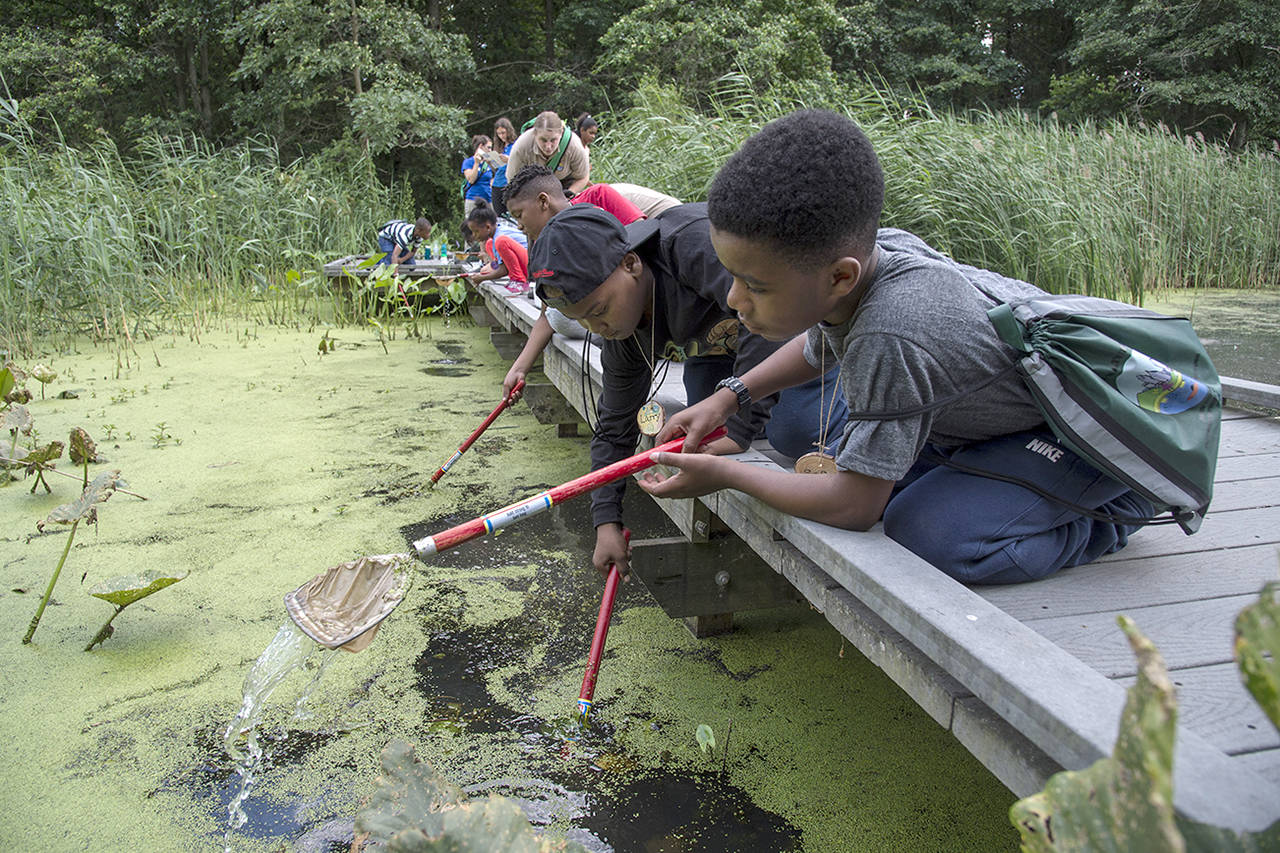By Samantha Melamed
The Philadelphia Inquirer
PHILADELPHIA
”As primary-care pediatricians, one of our goals is to help children get more active. The American Academy of Pediatrics recommends 60 minutes a day of outside play,” he said. “This is something we already spend a lot of time screening for and talking to families about.”
Now, they’ll actually be able to prescribe it, in the form of customized, detailed action plans that are tailored to connect kids with Philadelphia’s park system at a time when children are spending far less time in nature than doctors say is needed for healthy development of motor skills, social competence, problem-solving abilities, and even eyesight. It’s an antidote to the plague psychologist Richard Louv calls nature-deficit disorder.
The initiative, called NaturePHL, is a collaboration between CHOP, the Schuylkill Center for Environmental Education, Philadelphia Parks &Recreation Department, and the National Forest Service.
NaturePHL will be a standard part of all check-ups for kids age 5 to 12 at CHOP, integrated into their electronic medical records.
Every patient will be screened, given a brief message about the importance of outdoor play, and referred to a new website, NaturePHL.org, that provides a guide to local parks. Some — perhaps those struggling with obesity or attention-deficit disorder — will get more comprehensive counseling; and a detailed park prescription for an outdoor activity such as a hike, a scavenger hunt, or a visit to a playground
They also will get a referral to a “nature navigator.” That’s a community health worker who will help create a detailed plan, figure out how to overcome barriers to getting outside, or even join the patient on a park visit.
Wedging these conversations into a 15-minute pediatrician visit may be challenging, but the hope is, if there’s a patient whose body-mass index has been creeping up over several visits, the doctor might set aside a couple of minutes to talk about options.
“We’re the ones who are going to have to do this. This has to be practical,” said Renjilian.
It’s not the first park-prescription program: Similar ones have launched around the country, created by a network of community health centers and the National Park Service that reported a 22-minute average boost in weekly activity.
The Philadelphia organizers intend to undertake the most comprehensive study yet of whether such programs work and how best to undertake them. They hope to analyze whether the program will lead doctors to talk about the importance of outdoor play more, whether kids in the program actually spend more time outdoors, and what effect, if any, it has on their health and well-being.
“There really isn’t any research out on parks-prescription programs, their effectiveness and their impact on health,” said Michelle Kondo, a scientist with the National Forest Service. “We’re still figuring out what’s important to measure and what you can quantify.”
It might involve using GPS trackers to check whether kids are complying with the prescriptions, or monitoring changes in a patient’s heart rate, blood pressure, cortisol levels (which indicate stress), core strength and attention.
Until now, she said, “these studies have been done with college students, for example, taking them on a bus ride out to the forest and hooking them up to machines as they sit or walk in the forest — not often with urban residents in their own neighborhoods.”
Kondo is thinking beyond Philadelphia. “The Forest Service would also like to be part of providing tools to other cities and other groups wanting to start parks-prescription programs.”
Renjilian, too, is hopeful.
“For kids with obesity, other than telling them to go outside, there was nothing to give them,” he said. “Now we have NaturePHL.”


